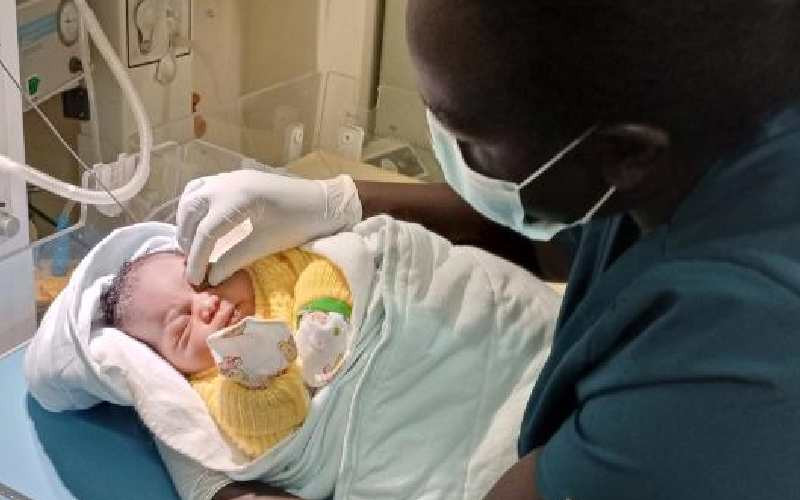
Caroline Kirui, a nurse at the Uasin Gishu County Hospital, cleans the eyes of the newborns and trains mothers how to do it. Checking their eyes is good for early diagnosis of retinoblastoma - cancer of the eye - whose signs include glittery pupils and squinted look.
Eye cancer is called retinoblastoma and at the clinics, mothers are also trained to look for any swelling, reddening, or protruding sockets and have their children referred for examination and treatment.
"Cancer of the eye is ignored, yet it causes blindness and death in children," says Kirui.
Facts First
Unlock bold, fearless reporting, exclusive stories, investigations, and in-depth analysis with The Standard INSiDER subscription.
Already have an account? Login
 The Standard Group Plc is a multi-media organization with investments in media
platforms spanning newspaper print
operations, television, radio broadcasting, digital and online services. The
Standard Group is recognized as a
leading multi-media house in Kenya with a key influence in matters of national
and international interest.
The Standard Group Plc is a multi-media organization with investments in media
platforms spanning newspaper print
operations, television, radio broadcasting, digital and online services. The
Standard Group is recognized as a
leading multi-media house in Kenya with a key influence in matters of national
and international interest.











